- Learning time
- 40 minutes
- First play time
- 120 minutes
The Shores of Tripoli
Designed by: Kevin Bertram
1801, and war breaks out between the United States and Tripolitania, with the US fed up of their merchant ships being plundered by pirates and Tripolitania somewhat averse to the political pressure from afar to leave them alone. In The Shores of Tripoli, two players take on the combatants in a battle that historically went the way of the USA. Will the same occur in your dramatic retelling?
The board shows the North African coast, populated by several boats flying the flags of the USA (blue) or Tripolitania (red). The US begin with a few frigates, whereas the harbour of Tripoli hosts the smaller corsairs and a number of ground forces, represented by cubes. Each player has a deck of cards: they deal themselves a hand of eight, and play begins.
Over the game’s several ‘years’ of play, each year is broken into the four seasons. For each season, either player (starting with the Americans) takes a single action, spending a card to do so. You can play the card for the event described on it, or simply discard it for a default action: the Americans can move ships around the Mediterranean, quite possibly attacking enemy boats as a result; the Tripolitans can go out on raids. Why raid? Because that is the Tripolitans most likely route to victory: by collecting the 12 gold pieces owned by America at the start of the game, they can claim an instant win.
So the US need to stop them, by policing the waters and trying to intercept: every raid the Tripolitans or their allies, the other African countries, go out on runs the risk of running into any frigates in the local waters, who will attempt to sink the corsairs. Less corsairs – less gold, so Tripolitania must make sure to keep building boats to cover their losses. And conversely, the USA can suffer losses too, although the way the game is structured they tend to keep getting stronger as each year passes, making Tripolitania’s efforts to pull off an economic victory harder and harder.
The USA have two ways to win: they can force Tripolitania to sign a peace treaty (and it is force! Although a number of circumstances must be met, with the Tripolitan corsairs, allies and ground units thoroughly depleted) or they can – in the late game – push an army across the coast and take hold of Tripoli itself. Conversely, this can also lead to another, less likely, route to victory for the locals: if they wipe out the American army. Around this basic premise are a number of tactical nuances brought into focus by events on the cards: Tripolitania’s engaging of allies to help snaffle gold. The USA calling on Sweden as allies to help negate aforementioned gold-snaffling. The USA’s use of gunboats to assist attacks on harbours or ground forces. Tripoli’s one-off Guns of Tripoli card, to give a specific example, which can be catastrophic if the dice roll well for them.
Ah yes, the dice! Although the decisions in the game are card-driven, how each battle plays out is down to the dice. If the cards suggest tactics, or even strategy, the dice represent the chaos of battle and how even the luck-management (strength in numbers; additional cards played for advantages) can sometimes throw up surprising and game-pivoting results. At the end of each year new cards are received, players discard down to the 8 card hand limit, and things start over, until either player has achieved a victory-winning condition (note that for the US player in particular, some cards cannot be played for the Event until a certain time in the chronology) or the final year is played out with neither reaching victory, in which case a draw is declared.
The game also offers a solo option where Tripolitania is played by an ‘AI’
The guru's verdict
-
Take That!
Take That!
It's a battle throughout, and you can't be sure what cards your opponent holds until they play them. And most are designed to do you damage!
-
Fidget Factor!
Fidget Factor!
Low. Each player does need to consider what to play from a hand of as many as eight, but you can both be doing so at the same time, and as each season passes your options are slowly reducing. There will be the odd lull, as the sound of gunfire dies away, but it's going to start up again soon...
-
Brain Burn!
Brain Burn!
There's some strategic aspects to The Shores of Tripoli, but the experience of play is often more tactical and reactive: one side tries to win early, the other holds on for the stronger endgame. Balancing the options of the cards with the state of the board is key, but so is anticipating and negating what your enemy is up to...
-
Again Again!
Again Again!
Each side in this war has unique objectives and a unique deck of cards with which to achieve them. The decks are always shuffled at the start of play so although you know you'll see all of them, you can's predict the order they'll appear. Even when familiar with the cards - here come the dice to harpoon best-laid plans and shake things up with unlikely mini-victories.



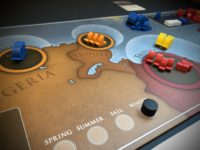





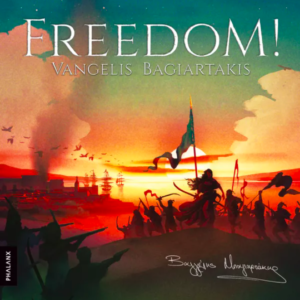
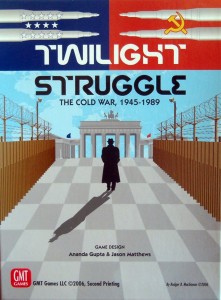

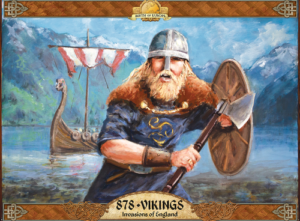
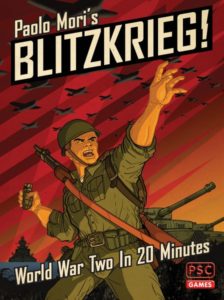
Sam says
The Shores of Tripoli appears in a fairly sombre box, with a fairly niché period of history as its theme, and contains the standard war-game fare of historical notes that, while fascinating to some, maybe don't immediately suggest FUN. War games are often heavy on the rules, liberal with the chits and bits, and need a day off work to fully learn exactly what the Sam Hill is happening. Not so here: a 12 page rulebook where the gist of the game takes up about half the space, and whilst the initial visit might involve a bit of referencing, you're quickly past that point as the cards themselves form a sort of guide through the games' chronology. Events are simple. Actions simpler. Fun is evident, assuming you like your games combative: the secrecy of the cards, the roll-and-hope of the dice, the tactical swings of momentum and - for me, critical - how each game tells its own story. The game is engineered enough to follow a slightly prescriptive path - the USA get stronger - but there's a lot of tactical maneuverability within the tracks of the story: room the for players to not only cross swords, but pull the metaphorical rug from under each other. A battle, yes. But attritional? Not at all.